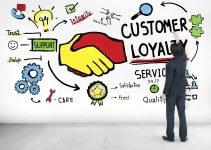In today’s competitive job market, resumes and interviews alone often fail to provide a complete picture of a candidate’s true potential. Scientifically validated assessments offer a more structured and objective approach, assessing cognitive abilities, personality traits, and job compatibility to help organizations build high-performing teams. These assessments are not limited to the hiring process—they also play a vital role in employee development, leadership training, and team building. Below are nine reasons why the science behind these assessments makes them a powerful and indispensable tool for both employers and employees
1. The psychology of employee assessments
Employee assessments are deeply rooted in industrial-organizational psychology, which focuses on studying human behavior in the workplace. Decades of research have helped identify the key factors influencing job success, including personality traits, cognitive abilities, and work style preferences. These assessments use validated psychological frameworks to predict an individual’s likelihood of excelling in a specific role. Unlike subjective hiring methods, assessments provide a measurable way to evaluate potential employees, leading to more informed and fair decision-making.
2. Measuring cognitive abilities
Cognitive ability is one of the strongest predictors of job performance. Assessments measuring problem-solving, critical thinking, memory, and reasoning skills help employers determine how well candidates can handle complex tasks and adapt to new challenges. Many cognitive tests are timed, assessing how quickly and accurately an individual processes information. Research has consistently shown that employees with high cognitive ability tend to learn faster, perform better, and make sound decisions under pressure, making these assessments particularly valuable for roles requiring analytical and strategic thinking.
3. Understanding personality traits
Personality plays a significant role in workplace success, influencing how individuals communicate, collaborate, and handle stress. Different roles require different personality strengths and these assessments help ensure that employees are not only capable of performing a job but are also well-suited for the company culture.
4. Predicting job compatibility
Beyond assessing skills and personality, effective employee assessments also evaluate job compatibility. By comparing a candidate’s profile with top performers in a given role, companies can determine how well they fit within a particular job function. This reduces turnover rates and increases job satisfaction, as employees are more likely to succeed in roles that align with their natural abilities and work preferences. Job compatibility assessments also help identify candidates who may be a better fit for alternative roles within an organization, maximizing talent utilization.
5. The role of data and AI in assessments
AI-driven tools compare vast amounts of assessment data, identifying patterns that help refine evaluation criteria. This ensures that assessments remain fair, unbiased, and adaptable to the evolving job market. By continuously learning from new data, these tools enhance the precision of hiring and development decisions.
6. Reducing hiring bias
Traditional hiring methods often introduce unconscious bias, leading to decisions influenced by factors unrelated to job performance. Scientifically validated assessments provide objective data that minimize biases related to gender, race, and socioeconomic background. Organizations can ensure more equitable hiring practices by focusing solely on skills, cognitive abilities, and personality traits. This fosters diversity and inclusion and leads to better business outcomes by selecting candidates based on merit rather than subjective impressions.
7. Enhancing employee development
Many organizations use these tools to identify employees’ strengths and areas for improvement, enabling targeted training and mentorship programs. Personalized development plans based on assessment results help employees maximize their potential, increasing engagement and long-term retention. Additionally, assessments can identify high-potential employees for leadership roles, ensuring a strong internal talent pipeline.
8. Improving team dynamics
Understanding team members’ cognitive and personality profiles allows managers to build more cohesive and productive teams. Assessments provide insights into how individuals prefer to work, communicate, and resolve conflicts. By leveraging this information, leaders can assign tasks more strategically, improve collaboration, and foster a positive work environment.
9. Validity and reliability
For an assessment to be effective, it must be both valid (measuring what it claims to measure) and reliable (producing consistent results over time). Rigorous testing and statistical analysis ensure that these assessments accurately predict job performance and remain applicable across diverse industries. Organizations that use well-researched, scientifically backed assessments can trust that the results are meaningful and actionable, providing a solid foundation for hiring and development decisions.
Conclusion
Employee assessments are more than just a hiring tool—they represent a scientific approach to understanding people in the workplace. By leveraging cognitive, personality, and job compatibility insights, organizations can make smarter hiring decisions, enhance employee development, and foster a more productive and engaged workforce. These assessments help ensure that the right people are placed in the right roles, leading to higher job satisfaction, better team dynamics, and improved business outcomes. Businesses that embrace these tools will be better equipped to navigate talent management challenges, ensuring that employees and organizations thrive in the modern workplace.




